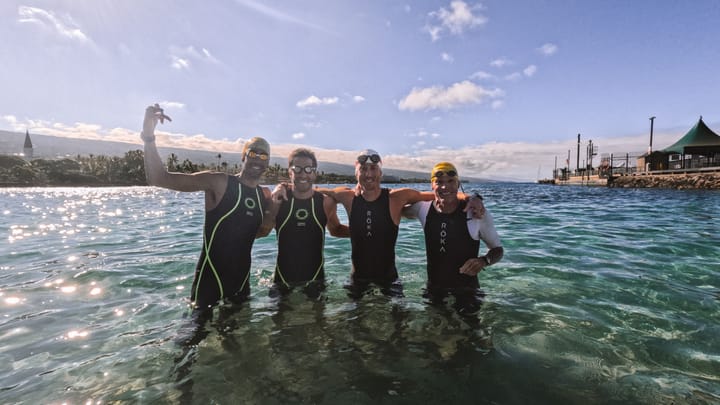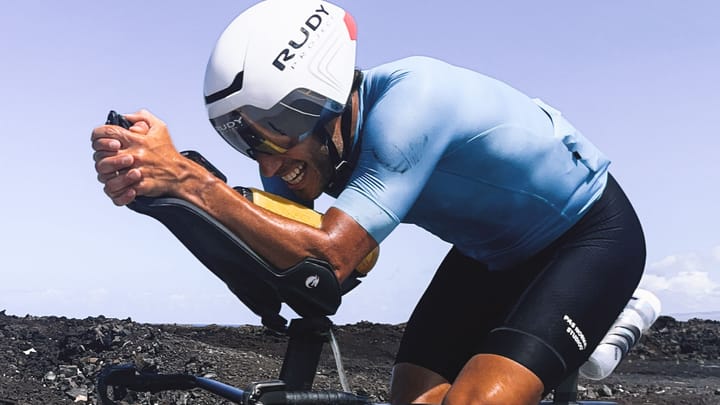Seeking the Ideal Triathlon Coach: A Comprehensive Guide
Elevate your triathlon journey by asking the right questions to find the perfect coach tailored to your athletic aspirations and needs.

Triathlon training is intricate and multifaceted, demanding specialised knowledge and skills. The right coach can significantly impact an athlete's success and overall well-being. Given the myriad of coaches available, pinpointing the perfect fit can be daunting.
Many athletes begin their search without a clear understanding of their own preferences and needs. This can lead to mismatched coaching partnerships, with athletes potentially sacrificing crucial training aspects and not reaching their full potential.
So, how should an athlete approach the process of selecting a triathlon coach? What specific criteria should they prioritise, and what questions should they pose during the interview process?
Pre-Interview Self-Reflection
Before diving into interviews, athletes should internally reflect on:
- Coaching Location: Preference for a local coach versus remote coaching flexibility.
- Communication Expectations: Ideal communication methods and frequency.
- Essential Services: Priorities like swim stroke analysis, bike fitting, and nutrition.
- Community Connections: Importance of a coach's link to the local triathlon community.
- Coach Background: Emphasis on a coach's competitive record versus their personality fit.
- Coaching Style: What motivational approach resonates best?
- Ultimate Goals: Clear aims when partnering with a coach.
Delving Deep During Interviews
Once equipped with clarity on personal preferences, athletes should probe potential coaches with these fundamental queries:
Credentials & Experience
- Certification: Ask about their certification bodies and levels.
- Triathlon-Specific Experience: Ensure they possess substantial triathlon coaching experience.
- Relevance of Experience: Ensure their expertise matches the athlete's current level and aspirations.
- Testimonials & References: Connect with past or present trainees to gauge the coach's efficacy.
Coaching Philosophy
- Customisation: Understand their approach to tailoring training programs.
- Periodisation: Grasp their strategy for fluctuating training intensity and volume.
- Technology Integration: Ascertain how they leverage metrics to refine training.
- Evolution of Plans: Discover their approach to adapting training plans based on evolving athlete capabilities.
Communication
- Methods & Frequency: Align on preferred communication avenues and cadence.
- Response Time: Confirm their responsiveness to concerns and queries.
- Progress Check-ins: Discuss the frequency of performance reviews and feedback.
Race Readiness
- Taper & Pre-race Strategy: Unearth their approach to the final preparatory phase leading up to the race.
- Race-Specific Expertise: Ensure their familiarity with the athlete's target events.
Complementary Offerings
- Broader Guidance: Discuss their expertise in areas beyond basic training, like nutrition, gear, and recovery.
- Local Connections: Gauge their embeddedness in the local triathlon scene.
- Allied Support: Confirm their network with other professionals, like bike fitters and health specialists, which can provide a holistic support system.
Injury Prevention & Management
- Approach to Injury Prevention: How does the coach prioritise and implement injury prevention strategies in training?
Mental Conditioning
- Mental Strength Training: What techniques or strategies do they employ to strengthen an athlete's mental resilience and focus during training and races?
- Handling Performance Slumps: How do they support athletes through challenging periods, both physically and mentally?
Long-Term Development
- Athlete Development: Beyond the immediate season, what's their vision for the athlete's long-term growth and progression in the sport?
- Off-Season Training: What's their approach to off-season training and cross-training?
Financial & Logistical Considerations
- Cost Structure: How is the fee structure laid out? Are there additional costs for attending races, extra sessions, or other services?
- Contractual Obligations: Are there any contracts involved? What's the duration, and what are the exit clauses?
- Availability: How many other athletes do they coach? Will they be available for crucial races or training periods, or might there be potential conflicts?
Feedback & Assessment
- Feedback Mechanism: How do they provide feedback after training sessions or races?
- Performance Assessments: Do they conduct periodic performance assessments, such as time trials, strength tests, or technical evaluations to gauge progress?
- Referrals: Do they have a network of trusted medical professionals, like physiotherapists or sports doctors, to refer athletes to if needed?
Lastly, a robust online background check and cross-referencing with provided references can provide additional assurance. Remember, the athlete-coach relationship thrives on mutual trust and communication. The initial effort in securing the right partnership will indubitably result in heightened performance and enriching growth.





Comments ()